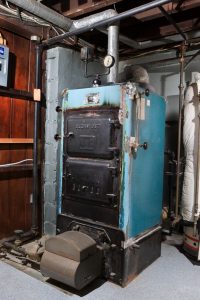Replacing your furnace is probably not something you want to think about. After all, a new furnace is a big investment and not something you probably have too much experience with. And sometimes having your current system fixed or tuned up is all you need to get your home heating situation back on track. But there are certain situations in which it makes more sense to just go ahead and get a new furnace rather than simply patching up the old one.
For instance, if you have to call for either minor or major repairs to your furnace on a regular basis, it’s probably time to consider investing in a replacement. All of those repairs cost money and chances are that the furnace you’re paying repeatedly to replace isn’t going to last that much longer anyway.
Rather than continuing to dump money into a furnace that just isn’t cutting it anymore, you’ll be better off making the investment in a new unit. The truth is, you’re going to have to do it sooner or later and by buying a new furnace now, you’re actually saving all of the money you would have spent on repairing the old one for another year or so.
Also, a furnace that requires such frequent repairs is probably not functioning all that efficiently either. When you replace it with a newer model, you won’t just save money on repairs. You’ll also likely notice a considerable savings on your monthly energy bills because of how much more efficient your new model is.
Even if you haven’t been repairing your furnace often, you may be able to notice some signs that the old unit isn’t quite up to the task anymore. If you’re suddenly having some significant humidity problems in your house or if your home isn’t being heated evenly, there’s a good chance your furnace is on its way out.
And, in fact, even if your furnace is functioning just fine but is more than 10 years old or so, it’s very likely you’d benefit by replacing it. That’s because the newer furnaces available now are so much more energy efficient than their predecessors that the savings you’ll incur monthly will quickly make up for the initial installation investment.
Of course, you don’t want to get rid of a good furnace if you don’t have to. But if your furnace is getting close to the end of its expected lifespan, you may very well benefit by putting out the money for a new one now so you can start saving right away on your monthly energy bills.
Continue Reading
Tags: Eagleville, furnace, Montgomery County, Perkiomenville, Telford
Posted in Heating | Comments Off on It’s Time for a New Furnace



 We’re getting close to the heating season. As we shut off our air conditioners one by one, the heaters will begin to turn on—except for the ones that haven’t been maintained properly. That’s right, if you’ve kept up with our blogs during this cooling season, it’s not just air conditioners that could benefit from yearly maintenance, but furnaces as well!
We’re getting close to the heating season. As we shut off our air conditioners one by one, the heaters will begin to turn on—except for the ones that haven’t been maintained properly. That’s right, if you’ve kept up with our blogs during this cooling season, it’s not just air conditioners that could benefit from yearly maintenance, but furnaces as well!